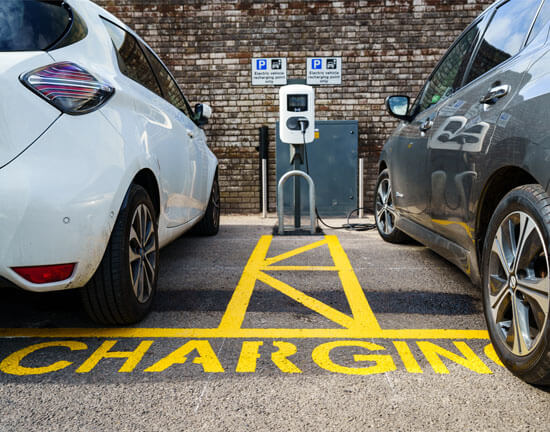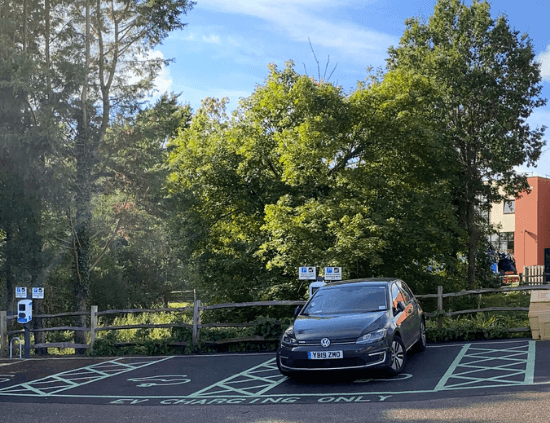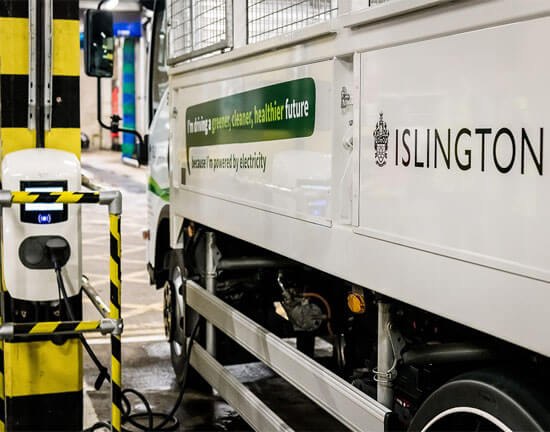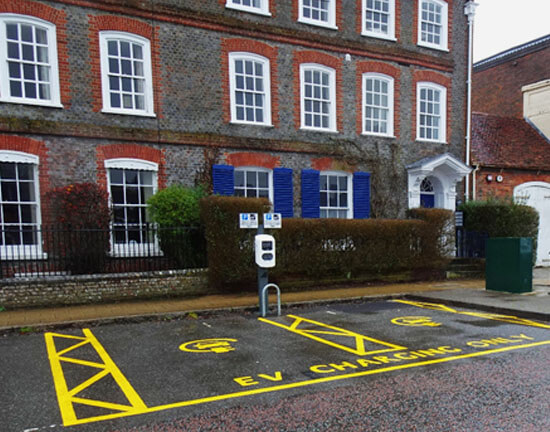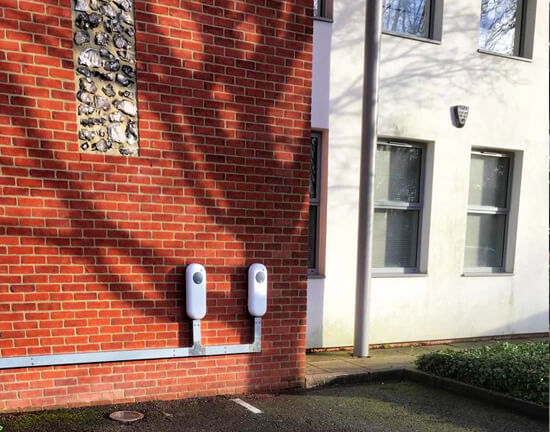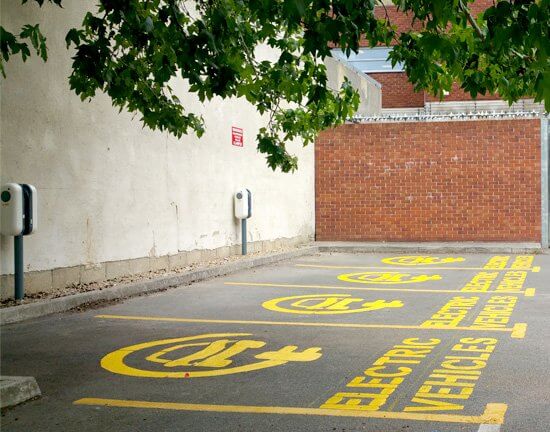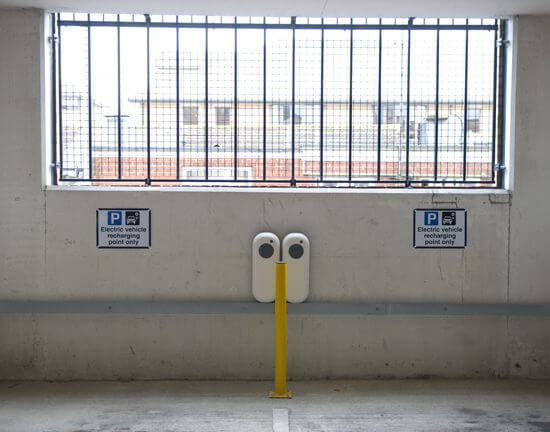Find out about Joju’s fully financed EV charge point package – and other sources of grant funding

Funding for Public Sector Electric Vehicle Charging Infrastructure
Funding EV Charging Infrastructure
EV chargepoint programmes can be substantial investments and we understand the challenges you face in terms of securing finance for these schemes against other pressing public sector priorities. We can provide you with information and support for your applications for grants and private sector finance. You can also choose to co-invest in EVCI projects with our finance partner to help realise a share of the profits from day one.
External funding for EVCI projects is widely available but is varied in nature. There are pots of money available for specific applications, or in specific areas, funded via a range of sources.
The list below is a guide to available sources of funding.
Discover the range of funding sources available
3rd party funding for installations at zero cost
Funding for innovative projects
Dedicated funds for on-street charging
THIRD PARTY FINANCE
Securing a third party finance arrangement for your public sector EV charging installation means there can be a zero capital cost to you. See below for more information.
We are able to provide a unique 3rd party finance offering for public bodies looking to install charge points off balance sheet. Our private sector funding partner is a leading supplier of wind-generated electricity to the UK. Ideal car park locations for EVCI for private sector finance are those that have more than 20 parking bays and high usage, are not located close to other (i.e. competing) EVCI, and can be enforced to ensure that only charging vehicles occupy the bays. EVCI deployed on-street and elsewhere can also be considered for funding.
The advantage of 3rd party finance is that there can be zero capital cost to you for the installation of electric vehicle charge points. The investor re-coups their initial investment over time by charging EV drivers for the use of the charge points. The investor also takes the risk on the project, which is important as predicting charge point usage into the future is an uncertain game. The upsides of the project can be shared between the council and the investor. Co-investment models are also possible, where the funder and the council jointly invest in the chargepoints, and share the profits between them.
A feasibility study will allow you to assess your portfolio of sites and see which sites would be eligible for 3rd party finance. The site will need to meet the funders threshold criteria in terms of capital cost and expected usage.
To see how this works in more detail, take a look at some of our case studies of 3rd party financed EV charging infrastructure programmes for Dorset Council, Winchester Council and Test Valley Council.
Summary
Charge points: For public fast and rapid chargers where usage is predicted to be high, though on-street may be possible
Coverage: Nationwide
Winchester Council
Winchester Council used 3rd party funding, co-funding and self-funding models on their EVCI programme.
LEVI – Local Electric Vehicle Infrastructure Fund
The Local Electric Vehhicle Infrastructure Fund aims to further support the roll-out of EV charging infrastructure across England. It is designed to encourage large-scale, ambitious and commercially sustainable projects that use significant private sector investment.
The initial pilot fund is for £10 million spread across 3-8 projects, and future rounds of funding are expected in the coming years.
Eligibility
-You need to be a local authority or a partnership led by a local authority in England
-The EV project should support the transition to EV use in a local area, with a focus on provision for those without off-street parking.
-The project shows innovation and improvement – idea is allowing accessible EVCI to be built which would otherwise not currently in place or planned
-The project should demonstrate how it would be successfully met and how it is value for money
Technologies
- The project must use technologies that meet the aims of the fund including:
-On-street slow and fast charge points
-Rapid charge points, if installed as part of a wider project that includes on-street slow and fast charge points Street or site adaptations
-Solar canopies and battery storage. Joju are well placed to help here, as we’re experts in both!
Officially the UK’s best
charge point installers

Installer of the Year
ORCS – On-Street Residential Charging Scheme
The On-street Residential Charging Scheme (ORCS) aims to increase the availability of on-street chargepoints in residential streets where off-street parking is unavailable, thereby reducing barriers to EV ownership. The scheme can also cover public car parks and land not owned by local authority on a discretionary basis if there is a lack of suitable local authority land (e.g. a village hall car park).
The grant covers up to 60% of capital costs of project and funding will not exceed £7,500 per chargepoint unless electrical connection costs are exceptionally high, in which case, £13,000 per chargepoint is available. 75% of the grant is paid up front, with the remaining 25% in arrears upon project completion. There is no minimum project size.
Remaining costs should be covered either by charge point operators who can recoup investment over time, or from the local authority budget if the CI will be owned and operated by the authority. Authorities should seek contact with investment partners prior to submitting a grant. Please do talk to us, or other support bodies such as Energy Saving Trust for free impartial advice.
Requirements:
-Applicants must be able to complete the project by March 2024.
-Projects should take no more than 6-12months from successful application for funding
-All chargepoints installed must have a minimum payment method (non-mobile and not tied to a brand), such as contactless.
-Chargepoints up to 22kW (not funding for 50kW rapid chargers)
-Must be in residential areas, for local residents lacking off-street parking
-Must be accessible to residents on a 24/7 basis. In car parks, the minimum “maximum stay duration” is 4hrs, to ensure charging time.

WCS – Workplace Charging Scheme
Run by OZEV and administered by the DVLA, the Workplace Charging Scheme is a voucher-based scheme that helps offset the purchase and installation of EVCPs for eligible businesses, charities and public sector organisations.
- Workplaces simply need to apply for the vouchers on the gov.uk website.
- It covers up to 75% of the total costs to purchase and install up to £350 per socket, and 40 sockets across all sites – therefore up to the sum of £14,000.
Eligibility
- Public authorities are eligible. This includes government departments and their agencies, the armed forces, local governments, the NHS and emergency services. Schools and colleges are eligible too.
- Said public body needs to have received – or have currently pending at the time of application – less than €200,000 of public support in the last 3 financial years.
- Needs to own the property or have consent from the landlord for EVCPs to be installed at all the sites listed in the application
- Parking must be for staff/fleet use, not for residents. Charge points cannot be installed at a domestic property.
Process
- After applying using the online application form, successful applicants are issued with a unique identification voucher code by email, which can then be given to any OZEV-authorised WCS installer. Directory available on gov website.
- Once the electric vehicle chargepoint(s) have been installed, the authorised installer can claim the grant from OZEV on the applicant’s behalf. The chargepoint installation must be completed and the voucher claimed within 6 months of the voucher’s issue date.
EV Charging Grant for Landlords
The EV Charging grant for landlords succeeds the Electric Vehicle Homecharge Scheme (EVHS). It offers funding to offset costs to purchase and install EVCPs for residential and commercial landlords.
- Landlord in this case could be:
- Independent landlord who lets the property
- Right to manage (RTM) company. Where leaseholders are given statutory authority to manage operations of the building, by setting up a special company.
- Companies who own common areas of the building.
- Public authorities, such as government departments and their agencies, the armed forces, local governments, the NHS and emergency services
Similar to WCS, the landlord needs to have used an OZEV compliant installer who can then claim for the funding on behalf of the local authority. The grant amount is given per EVCP socket installed. The scheme provides up to 75% off the cost per socket, limited to £350 per grant. For residential properties there is a limit of 200 grants per financial year, for commercial properties up to 100 grants.
The application doesn’t have to be for different properties; it could be all for one main property. However, you can only apply for one estate/building at a time per application.
Shared parking spaces should be treated as an estate, thus one application per shared car parking area.
Public authorities can apply for commercially let properties that have parking dedicated for staff use or fleet use of the tenant or prospective tenant, but these cannot be for public use.
Unlike the WCS, there is no voucher to claim. The installer just invoices the landlord, subtracting the grant amount. It’s the installer’s responsibility to inform DVLA with correct paperwork by the end of the calendar month of installation.
Charge point grants
Find out more about grants for EV charge points at residential properties





